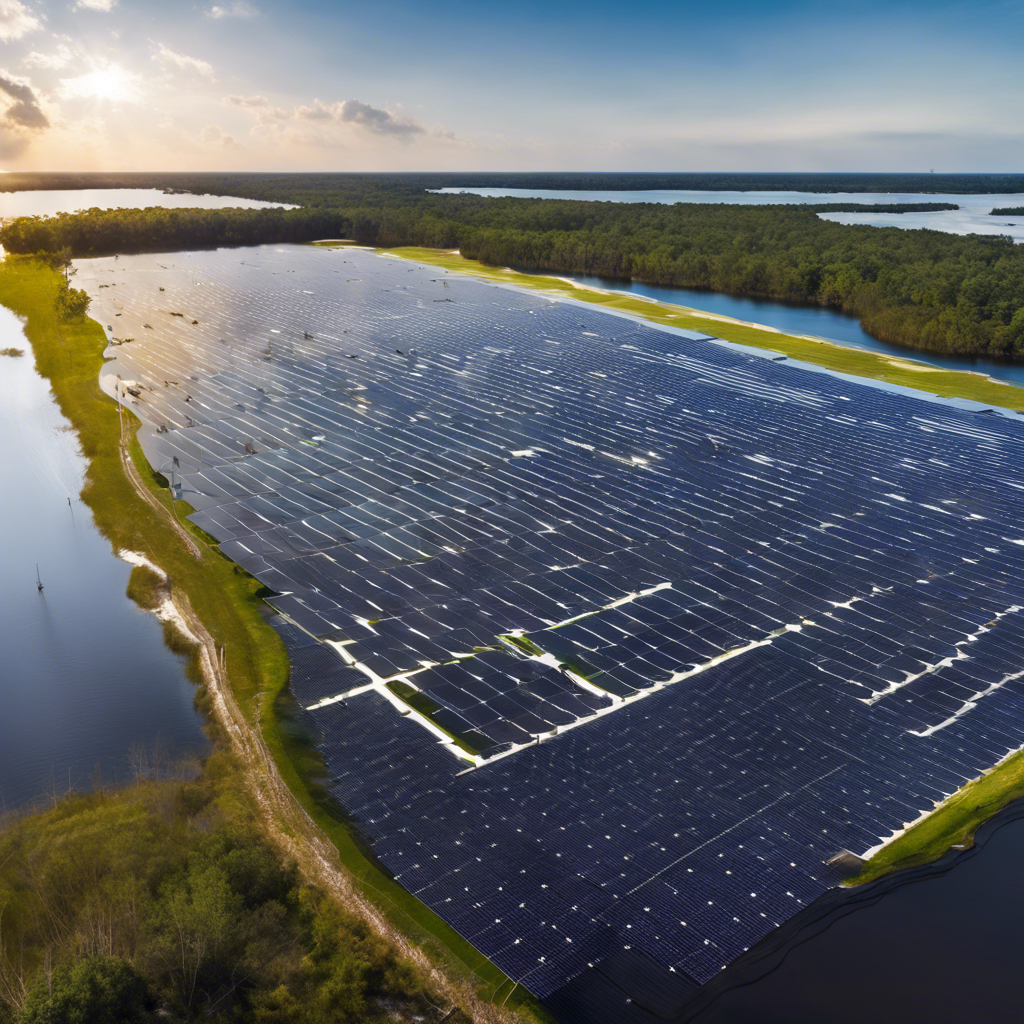Duke Energy’s innovative floating solar farm in Florida is generating clean electricity while conserving water resources.
Duke Energy, a leading energy company, has introduced Florida’s first floating solar farm, situated on an existing cooling pond in Polk County. The almost 1-megawatt (MW) solar array features over 1,800 solar panels that float on the water’s surface, providing clean electricity to power approximately 100 local households. This pioneering project not only showcases Duke Energy’s commitment to renewable energy but also demonstrates the potential of utilizing underutilized bodies of water to generate sustainable power.
1: Harnessing the Power of Floating Solar Panels
The floating solar farm utilizes bifacial solar panels, which are known to produce 10-20% more power than single-sided panels. By floating on the water, these panels benefit from the cooling effect of the water, resulting in increased efficiency. Additionally, the panels help reduce water evaporation and limit algae growth, contributing to the preservation of water resources.
2: Construction and Implementation
The construction of the floating solar farm took approximately six months, from assembly on land to anchoring in the pond. The modular design allowed for ease of installation, and the inclusion of walkways between every other row of panels enables crews to perform necessary maintenance and inspections. The successful connection of the solar farm to the grid marks a significant milestone in Duke Energy’s renewable energy goals.
3: Duke Energy’s Vision Florida Program
The floating solar pilot is part of Duke Energy’s Vision Florida program, which aims to explore various renewable energy projects. In addition to floating solar, the program is testing green hydrogen and battery energy storage solutions. Duke Energy has previously piloted floating solar projects with the US Army in North Carolina, further highlighting their commitment to innovation and sustainability.
4: Advantages and Benefits
The implementation of floating solar farms offers several advantages. By utilizing existing bodies of water, such as cooling ponds or reservoirs, these projects minimize land use and environmental impact. The cooling effect of the water enhances the efficiency of the solar panels, resulting in increased energy generation. Furthermore, the reduction in water evaporation and algae growth contributes to water conservation efforts, making floating solar farms an environmentally friendly choice.
5: The Future of Floating Solar
The success of Duke Energy’s floating solar farm in Florida paves the way for further exploration and implementation of this technology. As more companies and governments recognize the benefits of floating solar, we can expect to see an increase in similar projects worldwide. The combination of renewable energy generation and water conservation makes floating solar an attractive option for regions with limited land availability.
Conclusion:
Duke Energy’s floating solar farm in Florida represents a significant step forward in harnessing the power of renewable energy while conserving water resources. The use of floating solar panels not only increases energy efficiency but also minimizes land use and environmental impact. As Duke Energy continues to explore innovative solutions through its Vision Florida program, the success of this project serves as an inspiration for other companies and governments to invest in floating solar technology. By embracing sustainable energy sources and responsible water management, we can create a more resilient and environmentally conscious future.

